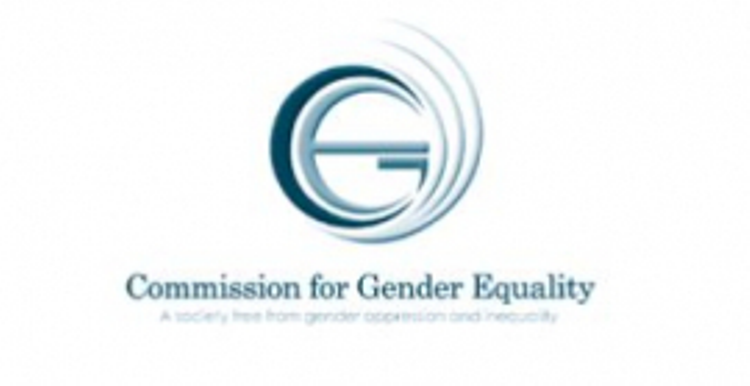ConCourt Ruling on Parental Leave Hailed as Victory for Gender Equality in SA
The Court found that these distinctions amount to unfair discrimination on the grounds of sex, gender, and family structure, contravening the equality and dignity clauses enshrined in the Constitution of South Africa.

- Country:
- South Africa
The Commission for Gender Equality (CGE) has lauded the Constitutional Court’s landmark ruling on parental leave equality as a transformative milestone in South Africa’s pursuit of gender justice and family rights. The ruling, handed down on Friday, redefines the landscape of parental leave entitlements and reinforces the principle of equal dignity for all parents, regardless of gender, sexual orientation, or family structure.
A Historic Judgment for Families
In a unanimous decision, the Constitutional Court ruled that the current provisions of the Basic Conditions of Employment Act (BCEA) and the Unemployment Insurance Fund (UIF) Act) unfairly discriminate between birth mothers, fathers, adoptive parents, and commissioning parents involved in surrogacy.
The Court found that these distinctions amount to unfair discrimination on the grounds of sex, gender, and family structure, contravening the equality and dignity clauses enshrined in the Constitution of South Africa.
Under the ruling, parents are now entitled to four months and ten days of parental leave, which they can share between themselves according to their family’s needs. This marks a major departure from the previous legal framework, which granted mothers four months of maternity leave, while fathers received only 10 days of parental leave — a disparity long criticized as perpetuating outdated gender norms.
CGE: A Victory for Equality and Family Diversity
CGE spokesperson Javu Baloyi welcomed the ruling as a resounding affirmation of equality and inclusivity. The Commission, which was among the applicants in the case, has consistently argued that Section 25 of the BCEA and Sections 24, 26, 27, and 29 of the UIF Act entrenched patriarchal views of caregiving by assigning the primary caregiving role to mothers.
“By declaring these provisions unconstitutional, the court has affirmed the principle that all parents — whether through birth, adoption, or surrogacy — must be treated with equal dignity and afforded equal rights,” said Baloyi.
He added that the decision recognizes the evolving nature of modern families and the shared role of parents in child-rearing. “It enables families to make decisions based on their unique circumstances rather than being confined by rigid legal categories.”
A Step Toward Inclusive Workplaces
The ruling also carries profound implications for workplace equality. By ensuring that both parents have access to substantial caregiving leave, the decision promotes shared parenting and helps dismantle stereotypes that have historically placed the burden of child-rearing on women.
According to the CGE, this equality in leave entitlement not only advances gender equity in the workplace but also improves child welfare outcomes, as research consistently shows that children benefit from early involvement of both parents.
“The Constitutional Court’s judgment is a critical step toward redefining caregiving as a shared social and economic responsibility,” said Baloyi. “This will foster stronger families and more equitable workplaces.”
Next Steps: Legislative Reform and Implementation
The Commission has urged Parliament to act swiftly to amend the BCEA and UIF Act in line with the judgment, ensuring that South Africa’s parental leave framework aligns with the Constitution and international best practices.
In its call to action, the CGE also appealed to employers, trade unions, and civil society to embrace the spirit of the ruling by fostering workplace cultures that support work-life balance, co-parenting, and equal opportunity.
“This is a victory not just for parents, but for children, families, and the broader project of gender equality in South Africa,” Baloyi said. “True equality will be realized when caregiving is valued as much as other forms of work — and when both women and men can participate fully in family life without penalty.”
Broader Impact: Shaping Future Policy and Culture
Legal experts and gender activists have praised the Constitutional Court’s decision as a progressive interpretation of family rights and a reflection of South Africa’s ongoing journey toward substantive equality.
They note that the ruling aligns the country with global movements that recognize non-traditional family structures, including same-sex couples and surrogate arrangements, as equal in law and dignity.
The decision also reinforces South Africa’s obligations under international frameworks such as the Convention on the Elimination of All Forms of Discrimination Against Women (CEDAW) and the International Labour Organization (ILO) standards on parental protection.
Towards a Culture of Equality and Care
The CGE emphasized that while the legal victory is monumental, its real impact will depend on how government, employers, and society implement and internalize the new norms.
“This judgment gives South Africa the opportunity to build a culture that truly values care — at home, at work, and in society,” the Commission said in a statement. “It is a bold step toward dismantling gender stereotypes and promoting shared responsibility in raising the next generation.”
As the country celebrates this ruling, it signals not only a victory for parents but also a shift toward a more humane, inclusive, and family-oriented society.










